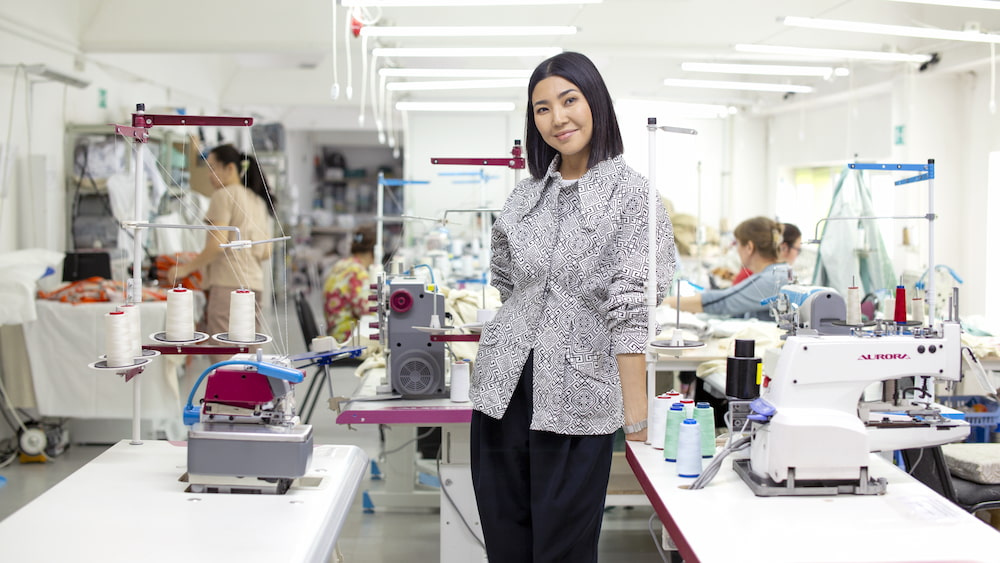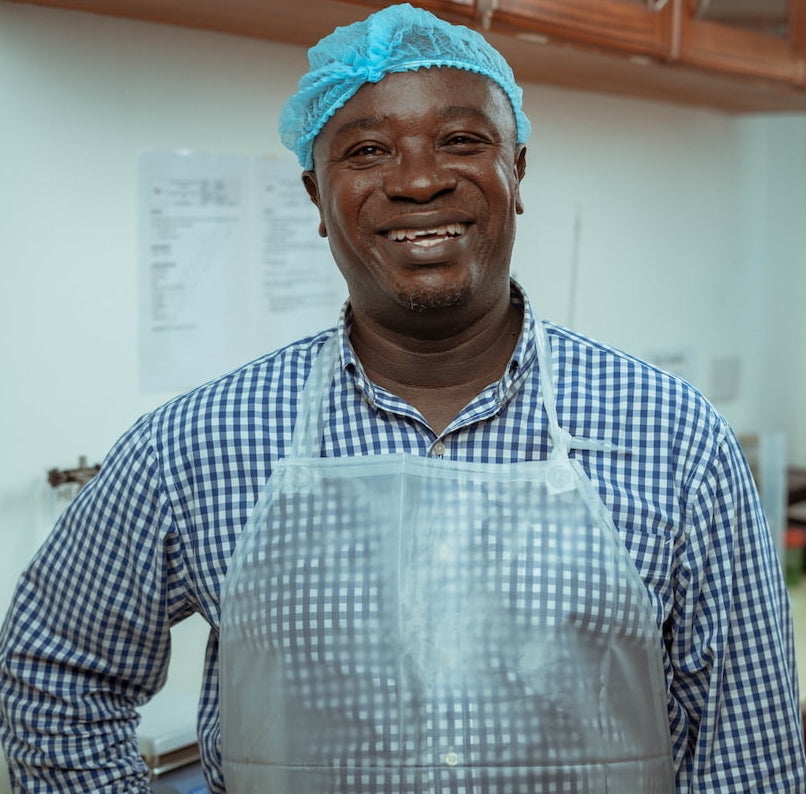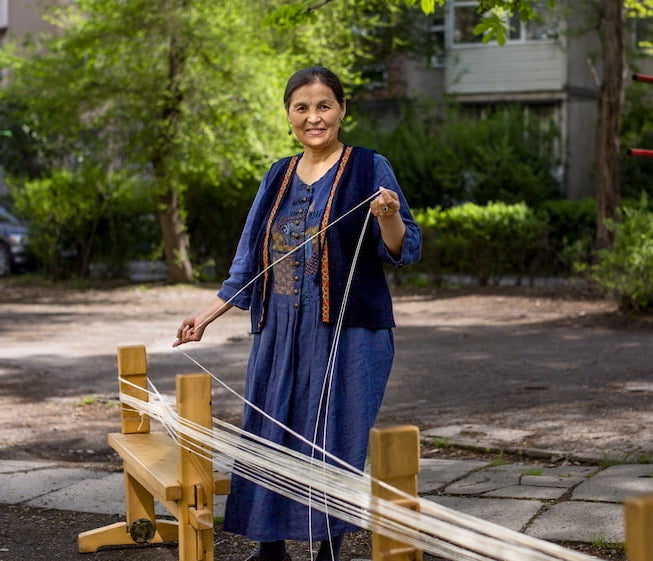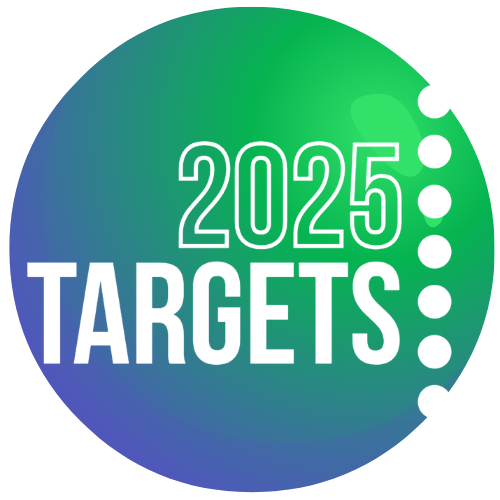Celebrating MSME Day 2023
Inspiring Stories of Small Businesses Leveraging Broadband for Sustainable Development
What is MSME Day?
The United Nations General Assembly designated 27 June as “Micro-, Small, and Medium-sized Enterprises Day” to raise awareness of the tremendous contributions of micro-, small and medium-sized enterprises (MSMEs) to the achievement of the SDGs. MSMEs account for 90% of businesses, 60 to 70% of employment, and 50% of GDP worldwide and serve as the backbone of societies everywhere, contributing to local and national economies and sustaining livelihoods, particularly among the working poor, women, youth, and groups in vulnerable situations.
However, despite their significant impact, many MSMEs, especially in low- and middle-income countries, face challenges in accessing and utilizing broadband connectivity, limiting their ability to participate in and contribute to the growing global digital economy.



The Broadband Commission recognizes the importance of connecting MSMEs and has dedicated its 6th Advocacy Target to “improving connectivity of micro-, small- and medium sized enterprises (MSMEs) by 50%, by sector by 2025.” To this aim, the Commission launched its 2022 Working Group on Connectivity for MSMEs, co–chaired by ITC and GSMA, to identify the challenges and define the opportunities for getting small businesses online.
Discover the impact stories
This year, in collaboration with the Working Group, the Broadband Commission launched an MSME Day campaign to illustrate the crucial role that meaningful connectivity can play in empowering businesses to thrive and adapt to the challenges of our digital age. Through this public call for impact stories, we heard from communities around the globe, representing various industries and regions, on how digital tools and connectivity have enabled their businesses to improve and expand.
Below, we highlight a selection of the stories submitted, to inspire others and to help raise awareness of the need for universal connectivity to enable small businesses to enter the global marketplace, making them more resilient for the future.

Connectivity streamlining operations and increasing sales
Vceela, an e-commerce platform in Pakistan, seeks to revolutionize the craft sector in the region by eliminating the need for middlemen and empowering artisans. Vceela’s ecosystem leverages technology to connect creators directly with customers, breaking the cycle of exploitation that has often plagued the industry. Connectivity has not only enabled a fairer and more sustainable model for artisans to sell their crafts but has also preserved the unique crafts and cultures associated with their work.
Datina Designs, an Afrocentric ready-to-wear organization from Nigeria, has capitalized on connectivity to increase their revenue, expand their customer base, and streamline operations. Through their e-commerce website and social media platforms, they have created increased brand visibility, advertised their fashion products and services, and engaged potential new customers, thus maximizing market reach and establishing a robust online presence.
Masha Coffee is a women-led Arabica coffee business in Uganda. Through connectivity, they gained access to data, timely information, and traceability using GPS coordinates to map out risky areas and plan for timely interventions. That resulted in a 15% estimated increase in revenue, 15% customer base expansion, 20% streamlined operations for the organization.

Connectivity expanding partnerships and access to resources
By leveraging connectivity, MSMEs can access valuable resources such as online databases, research papers, and industry-specific platforms. Philippine Wild Raw Honey, a honey producer from the Philippines, secured a 12-year internet subscription, gaining them the opportunity to participate in local and international webinars and online training programs from reputable institutions. The ability to connect with local and global experts and tap into international networks has fueled their capacity for innovation and product development, enabling them to enhance the quality and ensure authenticity of their honey products. And ultimately boosting customer confidence and expanding their market reach.
Lifesten Health, a health technology company from Rwanda, has successfully connected users through its website and mobile application to a network of fifteen health and wellness partners, reaching nearly ten thousand people in Rwanda. Additionally, their efforts have raised awareness about non-communicable diseases, fostering a healthier population.
Salma Maternity, a fashion retailer from Lebanon, has unlocked growth opportunities and forged strategic partnerships through connectivity and online platforms. It also was able to better connect with customers and continually evolve as an established brand in the region.
Humanitas Technologies Inc., an AI and data mapping service provider from the USA, has harnessed the benefits of connectivity and full online operation. By offering data and AI insights, it facilitates collaboration between businesses, nonprofits, and government departments on the Internet, resulting in increased synergy and collective impact.

Connectivity for developing new, 100% online businesses
Trustineo is an agrotechnology company focusing on accelerating the digital transformation of the agri-food sector and commodity supply chain in Africa. As a digital smart contracting producer-to-buyer marketplace platform, it is reducing the carbon footprint for food transport, fighting food waste and ensuring sustainability of the entire value chain.
Accessibility Global LLC, an accessibility consultancy from the USA, is leveraging connectivity to make accessibility a reality for individuals with disabilities. By offering online Video Remote Interpreting (VRI) American Sign Language (ASL) interpretations it is breaking down communication barriers and providing equal access to information and services for individuals with disabilities.
IPification, a cybersecurity solutions provider headquartered in Hong Kong, leverages connectivity to deliver secure verification and authentication services, offering a streamlined user authentication experience while ensuring robust security measures, safeguarding online interactions and protecting user data.

Connectivity for Impact: Advancing the Broadband Advocacy Targets and SDGs
MSMEs worldwide have leveraged the use of digital tools and connectivity to mobilize resources, share practices and create innovative solutions to accelerate progress towards achieving the Global Goals and broadband advocacy targets. Below are diverse examples showcasing how these MSMEs effectively advance our 2025 Advocacy Targets:
Target 3: Get Everyone Online
Tianchic, a provider of IT infrastructure services from China, is working towards eliminating information inequality on a global scale by promoting network accessibility for MSMEs, actively contributing to the expansion of global networks, and advocating for improved internet accessibility in developing countries.
Target 4: Promote Digital Skills Development
Capamo Investment Limited collaborates with skilled artisans from Zambia by listing their products on their platform for showcasing and selling their work. The organization is committed to offering training on digital tools to further empower artisans to manage their own online channels to expand their customer base and revenue.
Target 5: Increase Use of E-finance
Crop2cash in Nigeria offers digital financing tools that improve financing transparency for banks while also enabling smallholder farmers in rural and remote areas to receive digital payments and build their financial identity. They have seen that “when access to credit doubles, the poorest income quintile can grow by 12%.”
Target 6: Get MSMEs Online
Tofora Online Trust from Zimbabwe works to empower MSMEs, Women, and Youths to embrace digital marketing, digital skills, and emerging technologies for business and career development through two major programs that are offered online and in-person.
Target 7: Bridge the Digital Gender Divide
Sehat Kahani, a telemedicine and Digital HealthCare platform in Pakistan, is working towards democratizing health care access for all and enabling flexible work opportunities for female doctors otherwise facing socio-cultural barriers to practice. Additionally, the platform offers nurse-assisted telemedicine E-Health clinics or facilitation centers in Low-income communities through telemedicine assisted mobile applications.
The Way Forward
As illustrated by the experiences shared above, it is critical that MSMEs are empowered with the connectivity, digital tools, and digital skills needed to participate in the global marketplace. Multistakeholder collaboration is a fundamental component of enabling this work. The Broadband Commission’s Working Group on Connectivity for MSMEs will release its report, “Making Digital Connectivity Work for MSMEs” this Fall, featuring policy recommendations and collaborative solutions for increasing access to connectivity for small businesses in low- and middle-income countries.
Share your own impact story with us by using #MSMEDay and tagging @UNBBCom.
More impact stories coming soon!
Additional resources from Broadband Commission Partners
Inspiring Stories of MSMEs Harnessing Connectivity for Success
Thank you to all that contributed to our campaign!
APITable (China), Applesay (China), Aranya (Bangladesh), Arte Fashion Store (Philippines), Agro Agape (Cambodia), BTRH (Bangladesh), Bhumijo (Bangladesh), CAPAMO INVESTMENT LIMITED (Zambia), Cuanu Consult Ltd (Nigeria), Crop2Cash (Nigeria), Datina Designs (Nigeria), Dibia Agricultural Helpline SL Limited (Sierra Leone), Eemerge (USA), Enrich Social Media (Malaysia), HEAD SHIP LTD (United Kingdom), Hello Tractor (Kenya, Nigeria, Uganda), Humanitas Technologies, Inc. (USA), IPification (HQ - Hong Kong), KAHAWA LINK COMPANY (Burundi), Khangadelic Enterprises (Kenya, USA), Lifesten Health (Rwanda), Masha Quality Holdings U ltd, Medtech Africa (Nigeria), MyStream, RVNV CO LTD (Mauritius), Salma Maternity Wear (Lebanon), SCE Korea, Inc. (Korea), Seam (USA), Sehat Kahani, Shizu (China, America, France), Tianchic (China), Tofara Online Trust (Zimbabwe), TRUSTINEO INTERNATIONAL PTE. LTD. (Singapore, Cote d'Ivoire), Upview Inc (USA), Vceela (Pakistan), WeCare Digital Health (Ethiopia), Wild Raw Honey Corporation (Philippine), WIWI TELCO (Mexico), Xinheyun (China).
The enterprises featured in this article are a selection of submissions to the Broadband Commission’s MSME day campaign. They do not reflect all of the stories submitted and are not an advertisement for or promotion of the companies themselves.
The designations employed and the presentation of the material in this webpage do not imply the expression of any opinion whatsoever on the part of ITU or UNESCO concerning the legal status of any country, territory, city or area or of its authorities, or concerning the delimitation of its frontiers or boundaries. The ideas and opinions expressed in this webpage do not necessarily reflect those of ITU and UNESCO. The mention of specific companies, products or services does not imply that they are endorsed or recommended by ITU or UNESCO in preference to others of a similar nature that are not mentioned. Errors and omissions excepted, the names of proprietary products are distinguished by initial capital letters. All reasonable precautions have been taken by ITU or UNESCO to verify the information contained in this publication. However, the published material is being distributed without warranty of any kind, either expressed or implied. The responsibility for the interpretation and use of the material lies with the reader. In no event shall ITU or UNESCO be liable for damages arising from its use.

